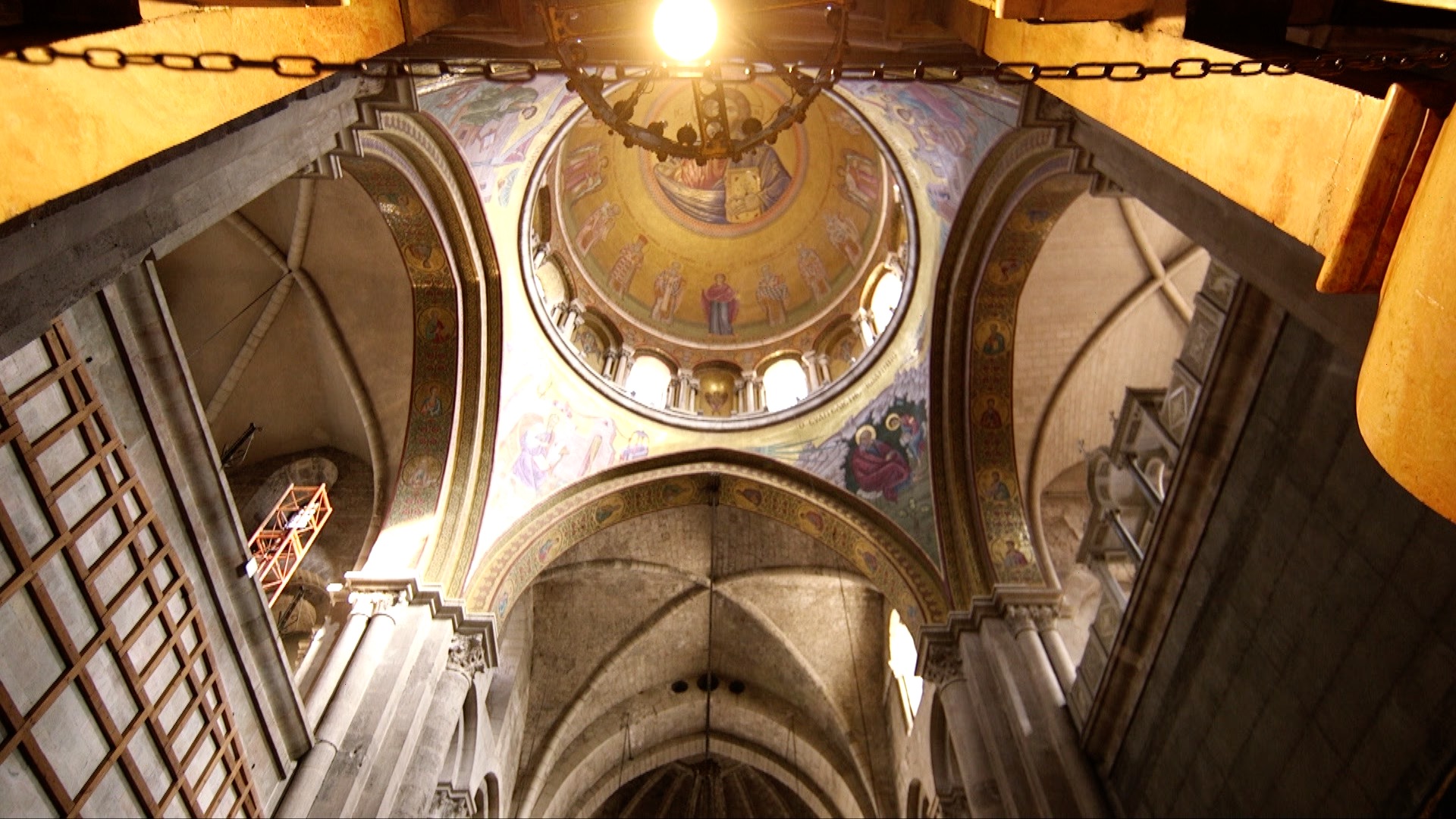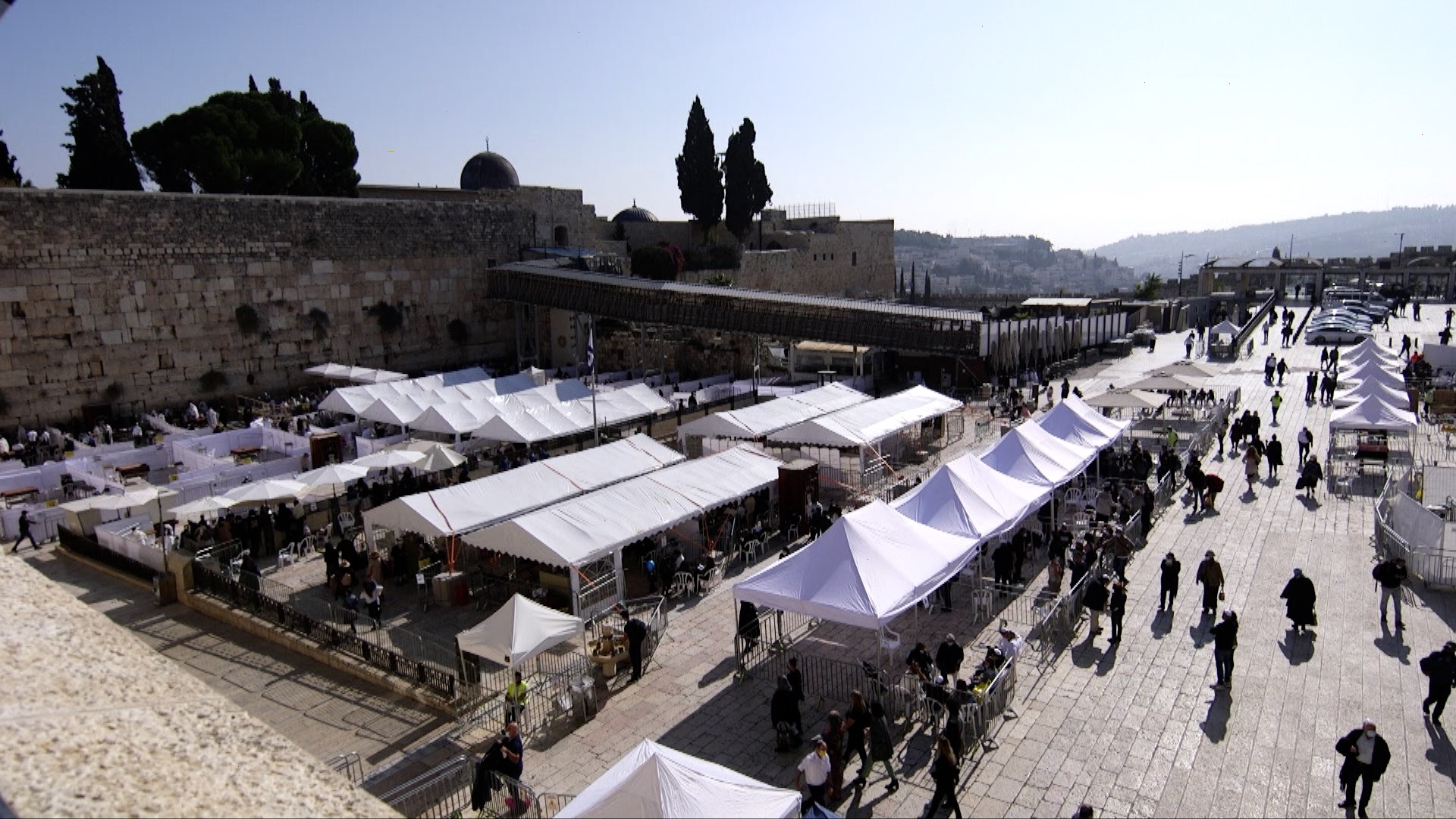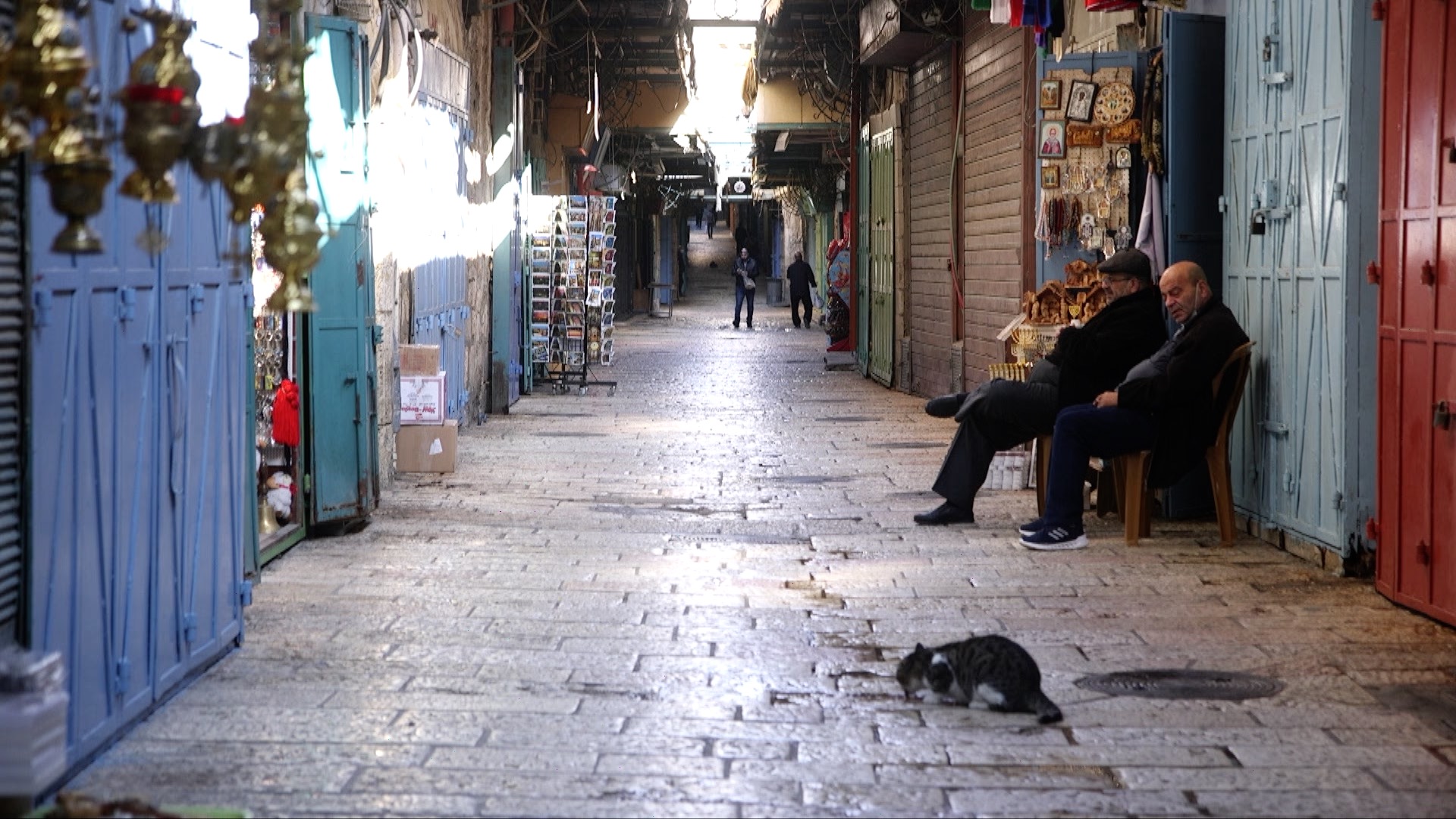
Deserted cobblestone streets, idle merchants biding time in empty shops, the world's holiest sites devoid of worshippers, in 2020, Jerusalem's Old City is a barren shadow of the bustling, pre-COVID-19 tourist-magnet it once was.
Lockdowns and curfews, tourism regulations, social distancing, crowd control measures and mandatory mask-wearing have taken a visible toll on Jerusalem's most revered spots.
The Western Wall or Kotel, Judaism's most sacred place, has morphed into a maze of segregated prayer stalls built to accommodate 20 worshippers per cubicle. Security is tight; distancing and mask-wearing are enforced.
Christianity's Church of the Holy Sepulchre built over the sight Jesus Christ is believed to have been crucified and resurrected, and is closed Friday through Sunday. One of the church's main attractions – the tomb where Jesus was buried – is barricaded. The few visitors to the holy site are locals.
Prayers at Islam's third holiest venue Al Aqsa Mosque are held outdoors in the open air. Worshippers entering the mosque compound are greeted by hosts dispensing hand sanitizer squirts from plastic pump bottles. Prayer rows are separated to enforce distancing rules and masks are a must.
Jerusalem's religious leaders don't blame specific groups or figures for the pandemic; they are circumspect, advocating introspection and temperance.

Separate prayer stalls are seen at the Western Wall, also known as Kotel, to curb the spread of COVID-19 in the Old City of Jerusalem. /CGTN
Separate prayer stalls are seen at the Western Wall, also known as Kotel, to curb the spread of COVID-19 in the Old City of Jerusalem. /CGTN
"We have to rethink our style of lives, especially in the Western countries where the production is the center and not the person," Latin Patriarch of Jerusalem Pierbattista Pizzaballa said.
In 2019, Israel hosted 4.55 million tourists – a hike of 11 percent over 2018 that brought with it an influx of more than 23 billion shekels (approximately $7 billion) to Israel's economy.
"Every single one of us has an obligation – a daily obligation – to look at the world around us and search our souls. To look at what is happening around us – at the terrible things – and search ourselves. Each person has his or her own private reckoning," said Rabbi Shmuel Rabinowitz, Rabbi of the Western Wall.

Vendors in Jerusalem during the COVID-19 pandemic. /CGTN
Vendors in Jerusalem during the COVID-19 pandemic. /CGTN
Land, air and sea border closures, lockdowns and COVID-19 restrictions in 2020 brought the country's tourism industry to a standstill.
"I don't have clients. There are no buyers," a Jerusalem shopkeeper told CGTN. "I'm lucky if I sell one item per day. The only reason I open my shop is because I can't sit at home and stare at the walls anymore."
As 2020 winds down, Jerusalem's unemployment hovers around 30 percent, Israel Employment Service figures show.
Hopes for returning to "normal" are centered around the Israeli government's aggressive COVID-19 vaccination campaign ambitiously predicted to inoculate all of Israel's approximately eight million residents by Spring 2021.
Until then, as Israel enters a third lockdown within a year, Jerusalem's ancient city remains mostly vacant. "It's a ghost town," Old City vendors lament.
(Cover: The Church of the Holy Sepulchre in the Christian Quarter of the Old City of Jerusalem. /CGTN)

